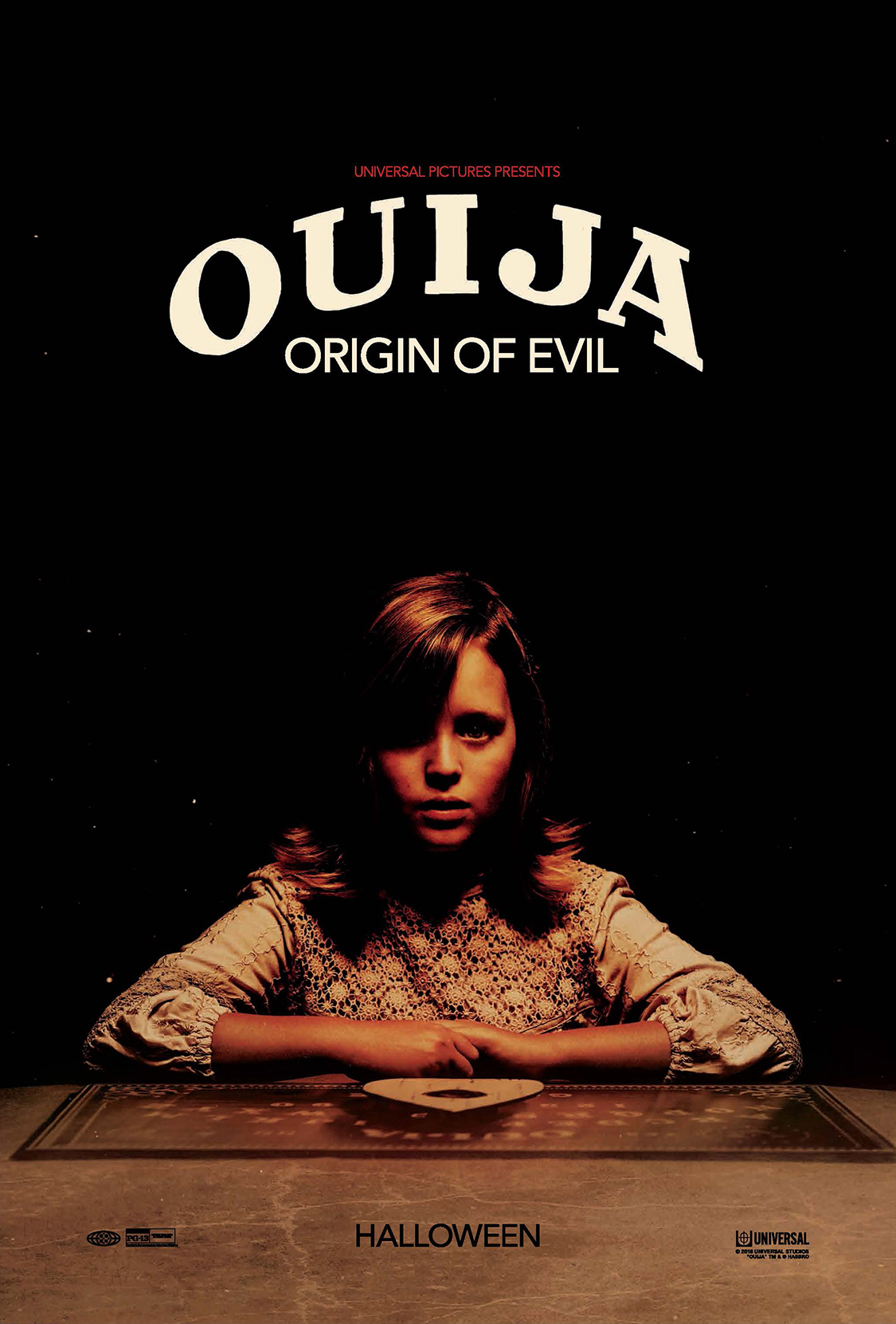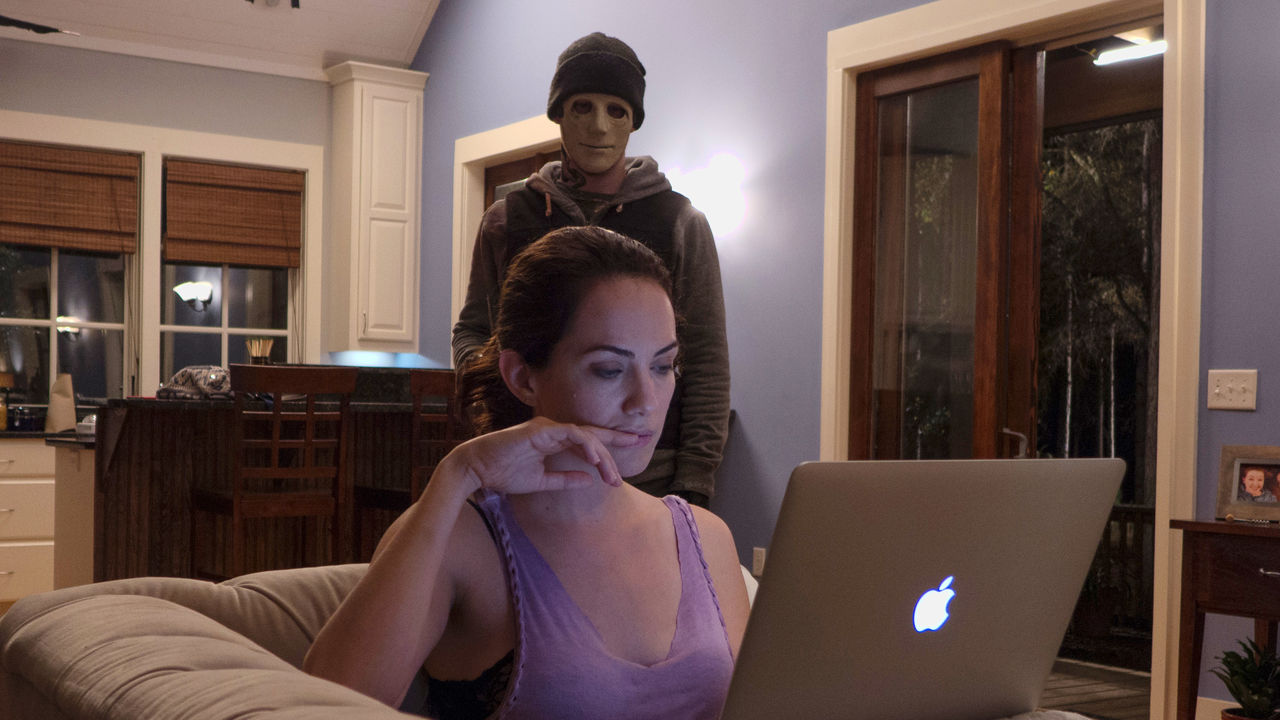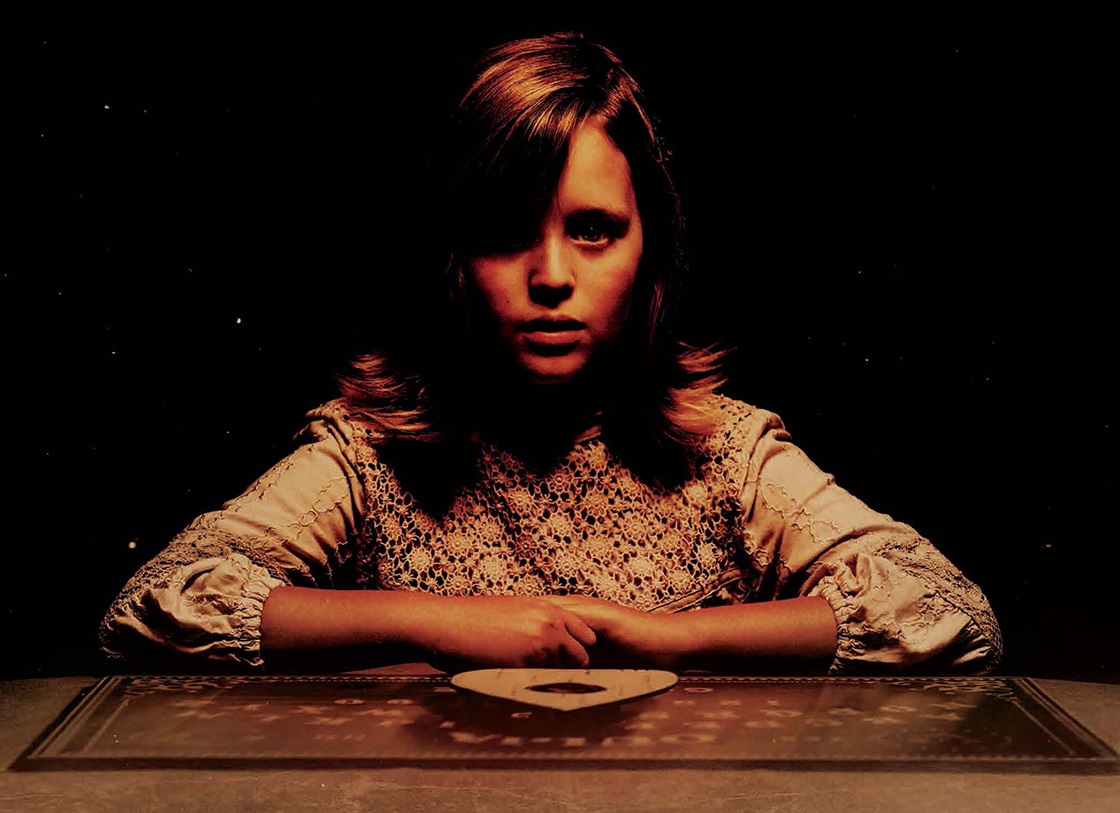The psychological horror film Hush, co-written by and starring Kate Siegel, has earned a coveted 100% rating on Rotten Tomatoes and high praise from Stephen King. The film has been praised on sites dedicated to horror, feminism and film alike, including The Line-Up, Dread Central, and xoJane.
Siegel appears in Ouija: Origin of Evil, out this weekend and directed by Hush director/co-writer Mike Flanagan. I reached out to Siegel to ask about Ouija, Hush, and the importance of women in horror. What I got was a conversation with the sort of artist that we all can admire. When Siegel acknowledges her mistakes, it is deeply thoughtful and contrite. She has a refreshing voice that horror needs right now, and is just the sort of heroine that she writes about: clever, resilient, innovative, and certain to survive.
Addison Peacock (TMS): I wanted to get started talking specifically about Ouija: Origin of Evil because it comes out on Friday. What should fans of your other work look forward to about the movie?
Kate Siegel: Well, the first thing I want to be clear about with Ouija is that my role is more like a cameo than a major role. I would not be like “hey fans of Kate Siegel, you’ll see lots of Kate Siegel in this movie.” But it is an awesome film; it is really terrific and scary and creepy, and very feminist. I think people will love that it’s about family, that it’s a period piece. It’s a thriller and a horror genre staple in the making.

You mentioned that Ouija: Origin of Evil is a feminist film; could you clarify that?
The heart of this movie is a single mother and her two daughters, which is something we almost never find in the genre. It’s a really fun movie to watch, you don’t find yourself pulled out of the film by gratuitous nudity, gratuitous sex, and gratuitous hot young teenagers running around. It’s a movie about a family that doesn’t have a father, and a single mom struggling to figure out how to raise two girls in the 60s.
Box office numbers have shown that many more women are going to see horror movies now than men. As a woman who enjoys horror as a viewer, and also creates it as an actor and writer, why do you think that is? What draws women in particular to the genre?
I think that women often are asked to minimize or negate our emotional experiences, but we feel things very deeply. Horror gives us the opportunity to experience extreme situations in a very safe way. We can have an outlet for feeling overwhelmed, for feeling afraid. There is a uniquely female experience of walking in the dark and feeling like something’s behind you. When you see it onscreen, I think we identify so clearly with these extreme terror moments. In real life people will often tell us we’re overreacting, or taking it too seriously, “it was just a joke”. It’s fun to be able to explore those emotional states through film knowing that the lights will come up and nobody will actually be dead. I think that there’s something that speaks to the divinely feminine in horror.

There are a lot of films in recent years like Hush, The Babadook, and others that seem to show a recent uptick in well-received horror films with female writers, directors and protagonists. What do you think is contributing to this?
The genre is unique because, if a movie is scary enough, it doesn’t need tons of money or a big name. Generally, the movies that fly under the radar can take more risks. And, for some reason, they see woman writers or female leads over the age of 22 as being a risk. But I do think that is changing! There is a desire for female voices and heroines of color, and hopefully that trend will continue. Horror will lead the way in that, because cream will really rise to the top. It’s one of the last places where story’s allowed to be king.
There’s been a lot of discussion of Hush’s deaf heroine. Did you feel a sense of pressure undertaking the task of writing and portraying someone whose experience is so different from your own?
For all of its positive feedback, there was a bit of backlash from the deaf community for not casting a deaf actress. When I wrote the script, I wasn’t aware of my exclusion of that community. As we began promoting, I began to learn that the community is fiercely independent, very capable, and takes it extremely personally when someone tries to portray a deaf character who is not deaf. I learned that I was being offensive, and that was very difficult for me. By the time the ball was rolling, it wasn’t possible to stop it. I thought “there’s a couple of options here: one is to try and be the perfect portrayal of a deaf person, which I can’t do because I’m not,” so I thought: I will be the most authentic version of Maddie Young that I can be, hopefully that will somehow ease some of this offense. I hope that it did. Something that people liked about Hush was that her weakness became her strength. I learned a lot about hearing privilege, white privilege, and about the assumptions I made before I wrote the script. I’m grateful for the knowledge I got about it; I learned a lot about my privilege as a hearing actress.
It’s important for storytellers trying to address stories that are not their own to be willing to apologize when you’re wrong?
Absolutely. I have a stepson who’s six years old, and we talk a lot about making mistakes. That’s how you learn. Not repetition, not memorizing, you make a mistake and you learn. You listen. You don’t know you’re doing it until someone points it out to you, and it is so embarrassing when they do. You’re thinking: I’m not that person, I don’t want to be perceived as that person. That’s the wrong point of view. You shouldn’t think about yourself when someone points out your privilege; you need to think about the person who is talking, you need to listen to them, and then, yes, you must apologize. Everyone wants to be heard. Hush is a metaphor for a time in my life when I didn’t feel heard at all. I felt like I was screaming, nobody was listening to me, and I couldn’t affect change in the world around me. That’s what’s so painful about feeling that I’ve insulted a community. It didn’t occur to me that, in writing this metaphor, I was making a whole community feel unheard.
How can we make horror (and film) a better place for women to work and create art that we can be proud of?
I think that the drought of opportunities has created competitiveness between women that doesn’t help us. Thee answer is: help the women get jobs. Find the women you love, go out there and write women, work with women, choose women to be in the writer’s room with you. Help pull up those beneath you, those people reach their hands down and pull up those beneath them, we do it like a ladder. The lack of opportunities has made us so competitive with each other that as writers and directors you get hesitant to include other women, then women of color and women with disabilities get even fewer opportunities. There’s so much infighting, we all need to stop this rhetoric that women don’t like women. I think women are the best! We have to invest in each other, over and over again.
I wanted to talk about your identity as a writer vs. an actor. What is your preferred way of storytelling? What makes you feel heard?
I love to get on my feminist soapbox and write. You can be a feminist actress, but you’re still hired to do a job. It’s like being a “feminist plumber.” You still have to fix the pipes. The feminism sits in the writing in stuff I’m working on, that lives in Maddie’s world where a woman that we normally wouldn’t see is the heroine. There’s one that’s been floating around my head about a postpartum mother who just gave birth. We never see those women, because we’re not going to be showering as much. I am not going to putting on a string bikini and running away from Michael Myers when I give birth. With acting, what I do is try not to take scripts that I wouldn’t want to show my daughter someday.
Hush images via Netflix; Ouija poster via Universal Pictures
Want more stories like this? Become a subscriber and support the site!
Addison Peacock was born in Atlanta, Georgia, but grew up in the beautiful Shenandoah Valley in Northern Virginia. She is in the process of earning her BFA in Musical Theatre from Shenandoah Conservatory, where she trains as an actor, singer, and dancer. You can find Addison watching and debating the worst movies on Rotten Tomatoes on her comedy podcast Zero to Zero, and voice acting on The Nosleep Podcast.
—The Mary Sue has a strict comment policy that forbids, but is not limited to, personal insults toward anyone, hate speech, and trolling.—
Follow The Mary Sue on Twitter, Facebook, Tumblr, Pinterest, & Google+.








